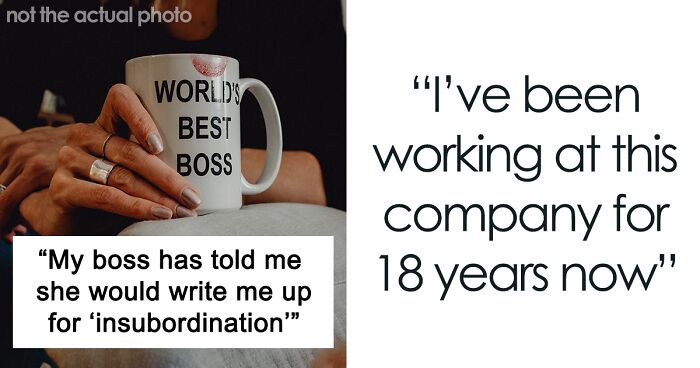
New Boss Risks Losing A High-Performing Employee With His Ridiculous Bathroom Rule
In middle school, many of us were familiar with the dreaded “hall pass.” If you needed to go to the bathroom, stop by the water fountain or take a trip to your locker during class, there was no getting around publicly announcing that to your teacher and the entire class. As annoying as this experience was, at least we knew it was temporary. Adults don’t need hall passes… Right?
Well, one boss who likes to keep her employees on a tight leash has decided that they must all sign in and out when they get up to go to the restroom. But one employee refuses to get on board with the new rule, so he’s reached out to the internet for advice on how he can fight it.
This man’s new boss has implemented a rule that all employees must sign out before going to the bathroom
Image credits: Kelly Sikkema (not the actual photo)
But rather than complying with the rule, he’s looking for a way around it
Image credits: Nicola Barts (not the actual photo)
Image source: Maleficent_Ad7033
Later, the man responded to several readers and shared more details about his situation
Employees are entitled to as many bathroom breaks as they need, as frequently as they need them
Image credits: Tim Mossholder (not the actual photo)
We’re all expected to be managed at work. A supervisor might check in once a week to ensure that you’re meeting deadlines or to see how productive you’ve been that day. But there’s a fine line between being an involved boss and micromanaging, and tracking employees’ trips to the toilet seems to be a bit extreme. When it comes to using the bathroom, OSHA states that employers must “permit workers to leave their work area to use the restroom as needed, provide an acceptable number of restrooms for the current workforce, avoid putting unreasonable restrictions on bathroom use, [and] ensure that restrictions on restroom use do not cause extended delays.” But the rules aren’t quite as clear cut when it comes to tracking workers’ trips to the toilet.
Some jobs may require employees to alert a colleague if they’re taking a bathroom break, to ensure that their station is covered or they don’t miss any phone calls during the time that they’re gone. But OSHA specifies on their site that any individual may require more or less trips to the bathroom, based on their health, fluid intake, age, etc., so there are no federal standards dictating exactly how many restroom breaks employees are permitted to. When they need to go, they’re allowed to go. And in the United States, employers are required to compensate their employees for breaks up to 20 minutes, so if these employees are “signing out” to use the restroom, they better make sure they’re still getting paid.
Micromanaging is a common tactic bosses use, but it always backfires
Image credits: CoWomen (not the actual photo)
Despite the fact that tracking bathroom breaks may be legal, there’s no question that it’s going to raise some eyebrows among employees. Micromanaging is a common tactic used by bosses who are insecure about their leadership skills, who don’t trust their teams or who believe that keeping their employees on a tight leash will increase productivity and eliminate issues in the workplace. But this style of leading always backfires. According to Acuity Training, 59% of workers say they’ve been micromanaged at least once during their career, and two thirds say that it negatively impacted their morale. 55% of these workers also noted that these overbearing bosses hurt their productivity, and over one third shared that they’ve even left a job due to being heavily micromanaged.
This authoritarian style of supervising comes from well-intentioned individuals, but it often creates a toxic work environment. Some signs that your boss might be micromanaging are if they constantly check in with employees about every detail of their work, they nit-pick and monitor every move of their staff, they don’t trust their team members to accomplish tasks on their own, they’re always looking for perfection, they criticize their employees harshly, and they don’t listen to input from their employees. This creates a lack of trust in the workplace, causes self-doubt in employees, leads to burnout and poor performance, stifles creativity, increases turnover rates and harms the company in the long run.
Rather than focusing on insignificant details, managers would benefit more from building relationships with their staff
Image credits: Sora Shimazaki (not the actual photo)
It’s understandable for a new boss to come into a company and have concerns about being taken seriously or being respected by employees who have been around far longer than she has. But attempting to track team members’ every move is not the way to earn their respect. Rather than implementing useless rules like signing in and out for bathroom breaks, Built In suggests on their site that managers focus on building trust and relationships in their office. Managers should focus on the big picture instead of tiny details like how often their employees have to get up from their desks. A great boss knows when to let things go and learns how to communicate effectively with staff members.
Perhaps if this boss makes space for learning and hearing her workers’ ideas, she might realize that tracking breaks is a waste of time and energy that isn’t doing her any favors. We would love to hear your thoughts on this situation in the comments below, pandas. Have you ever worked for a boss who felt the need to keep you on a tight leash like this? Feel free to share, and then if you’re interested in reading another Bored Panda article featuring a boss who deserves to learn a lesson about micromanaging, look no further than right here!
Many readers chimed in with their thoughts, as well as suggestions of what the man should do next
I had a Chief try to implement this back when I was the only woman in the division, though he wanted us to sign out for everything. So I would log every time I went to the bathroom; Chief tried to give me $hit for how often I was going, so I informed him (quite a bit louder than was necessary) that "I'm on my period, I need to go more often to change my pads". After about a week, the sign-out system was gone.
Every time you slide it over to the bathroom say to the boss, " Hey boss, this could be a while, gotta have a poop."
And never ever fail to loudly mention the IBS and Crohns.
Load More Replies...I had a Chief try to implement this back when I was the only woman in the division, though he wanted us to sign out for everything. So I would log every time I went to the bathroom; Chief tried to give me $hit for how often I was going, so I informed him (quite a bit louder than was necessary) that "I'm on my period, I need to go more often to change my pads". After about a week, the sign-out system was gone.
Every time you slide it over to the bathroom say to the boss, " Hey boss, this could be a while, gotta have a poop."
And never ever fail to loudly mention the IBS and Crohns.
Load More Replies...
 Dark Mode
Dark Mode 

 No fees, cancel anytime
No fees, cancel anytime 







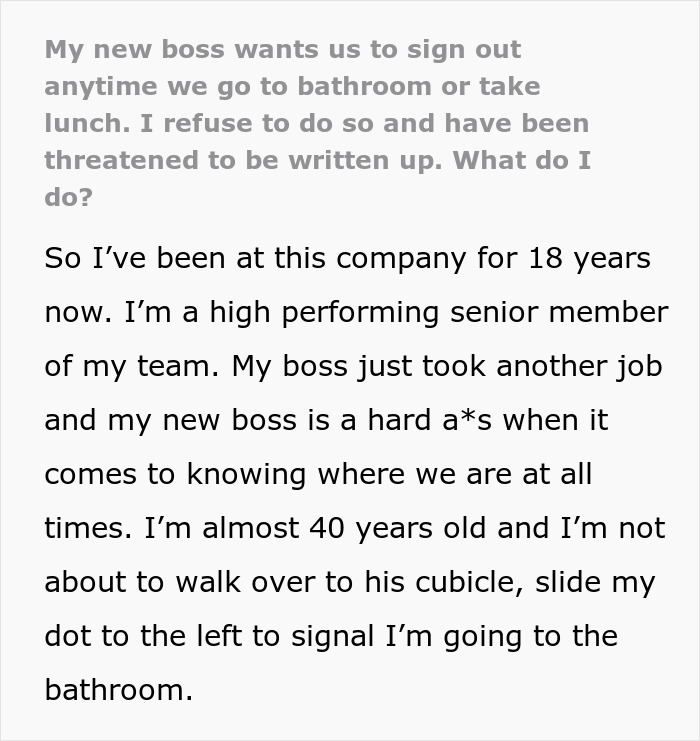
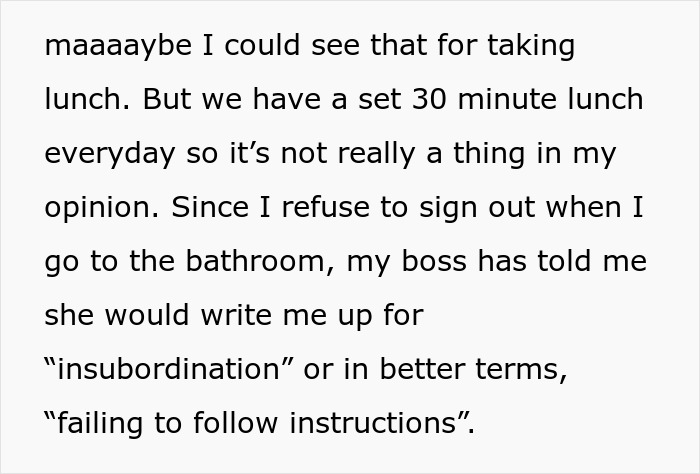
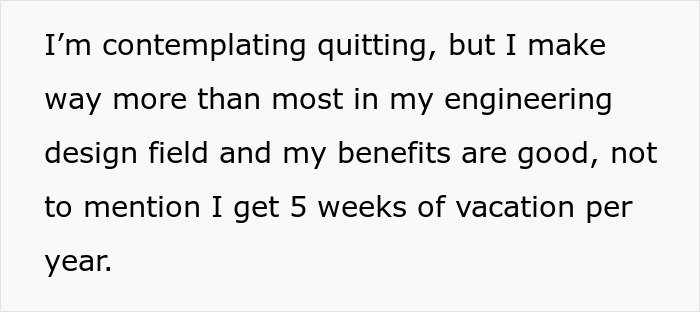



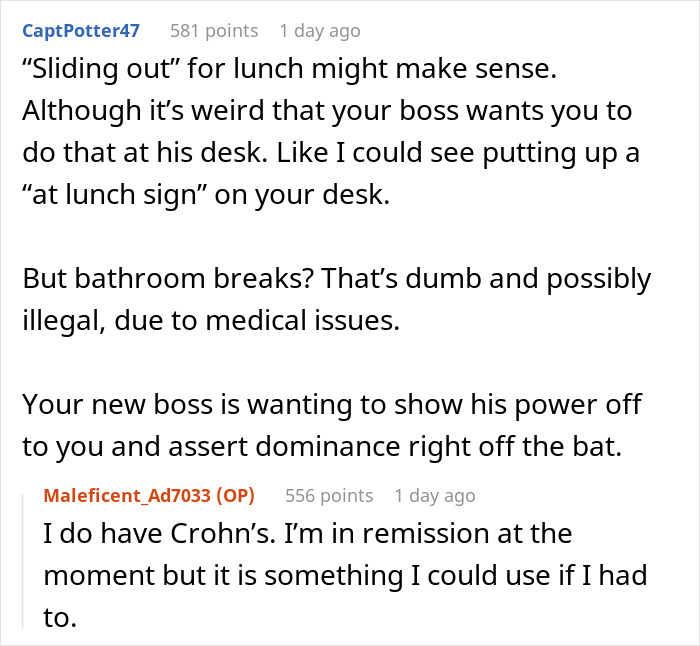
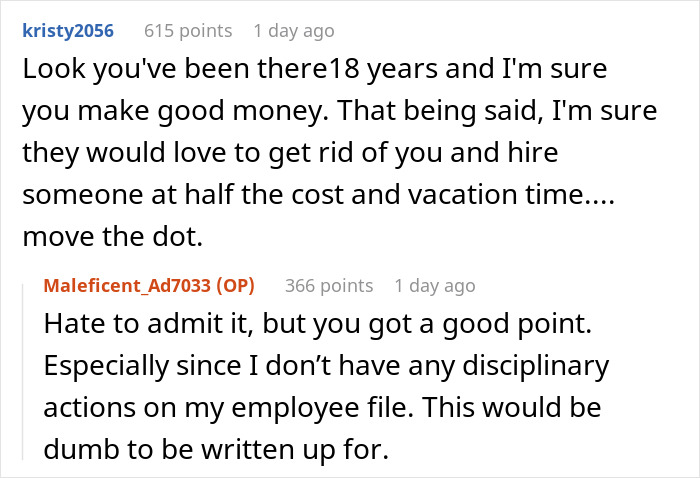
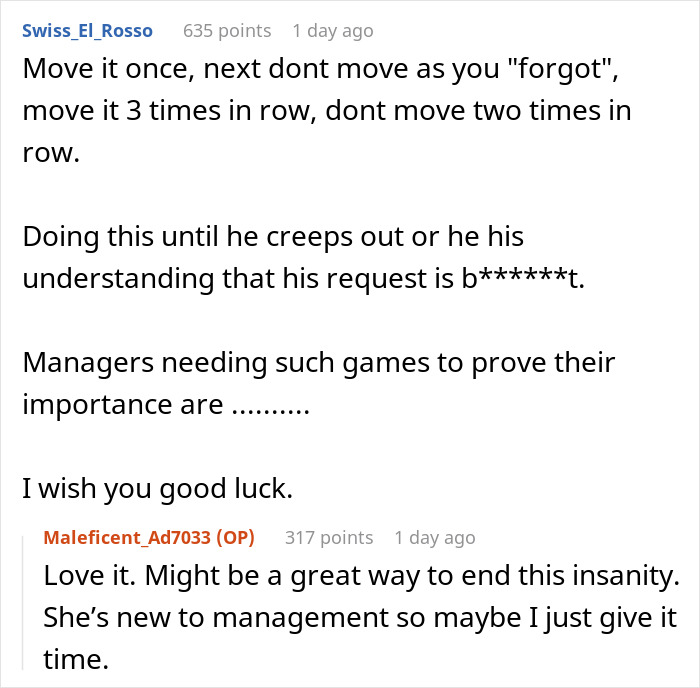
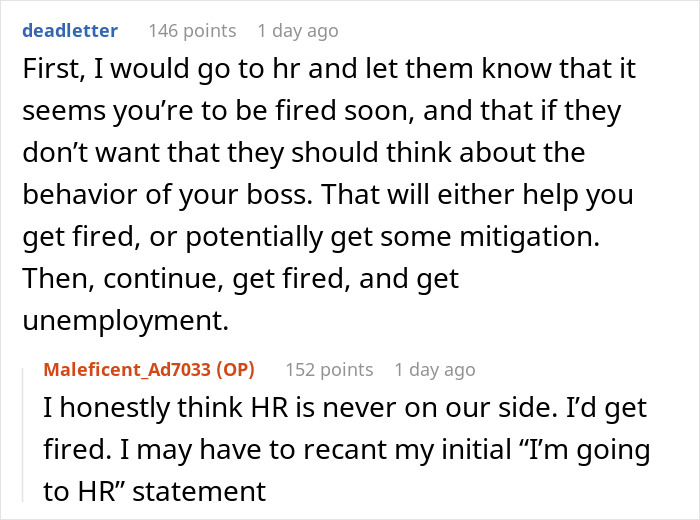
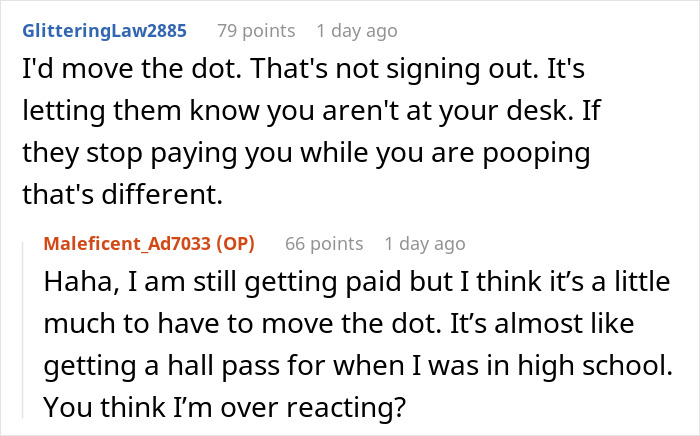



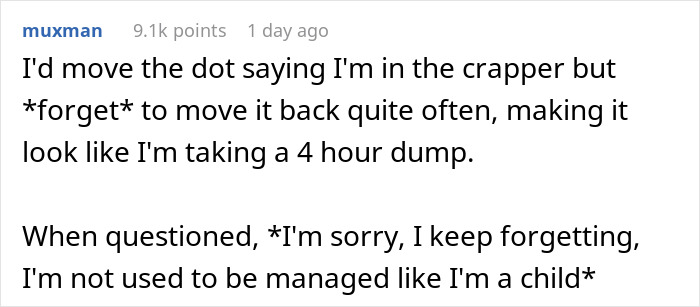

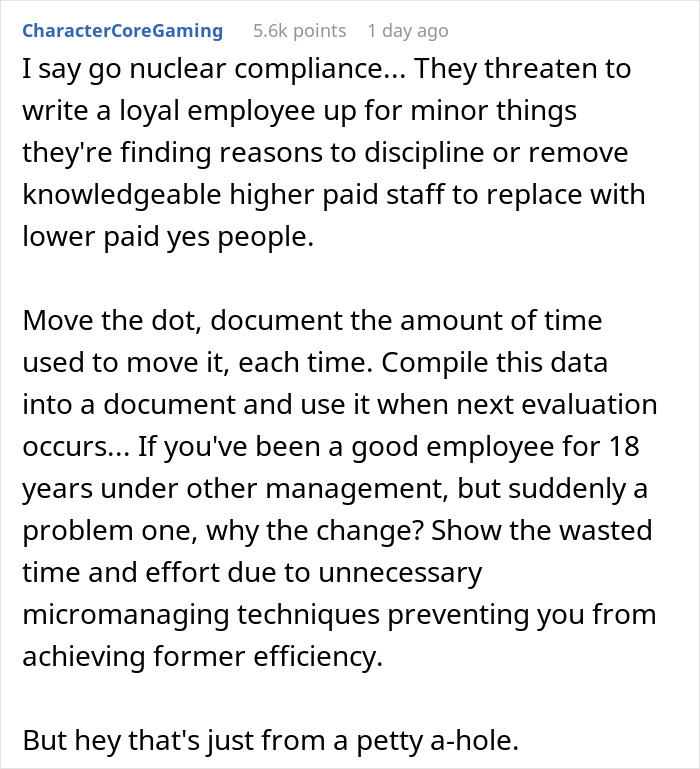
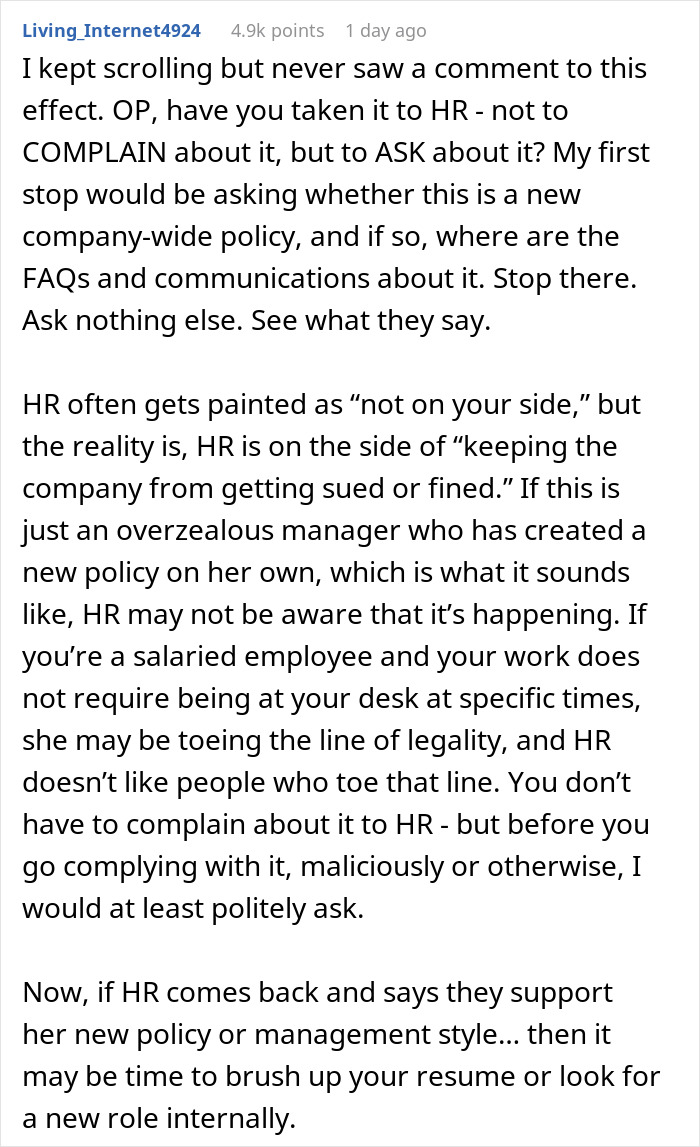
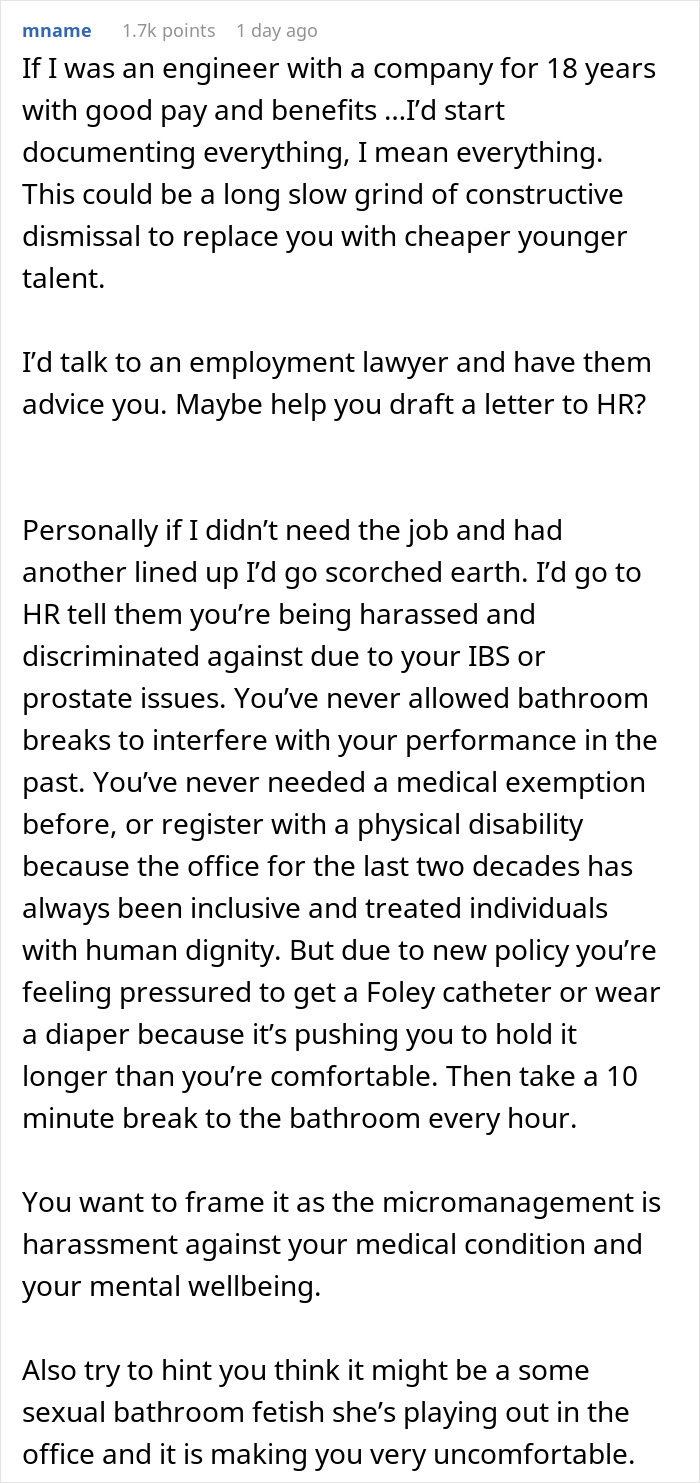


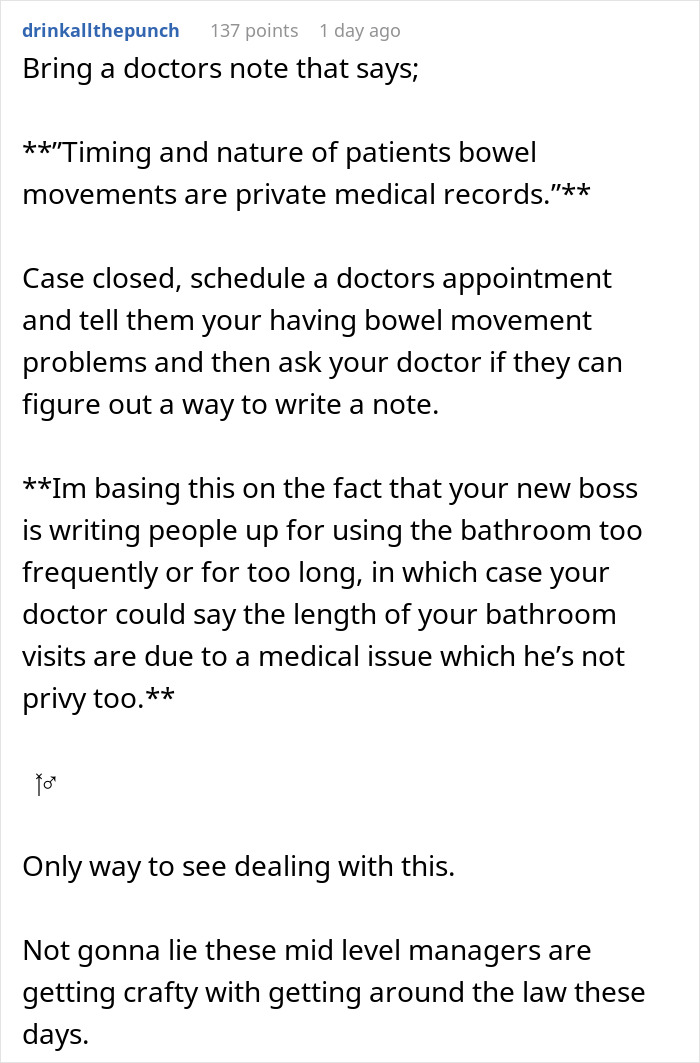
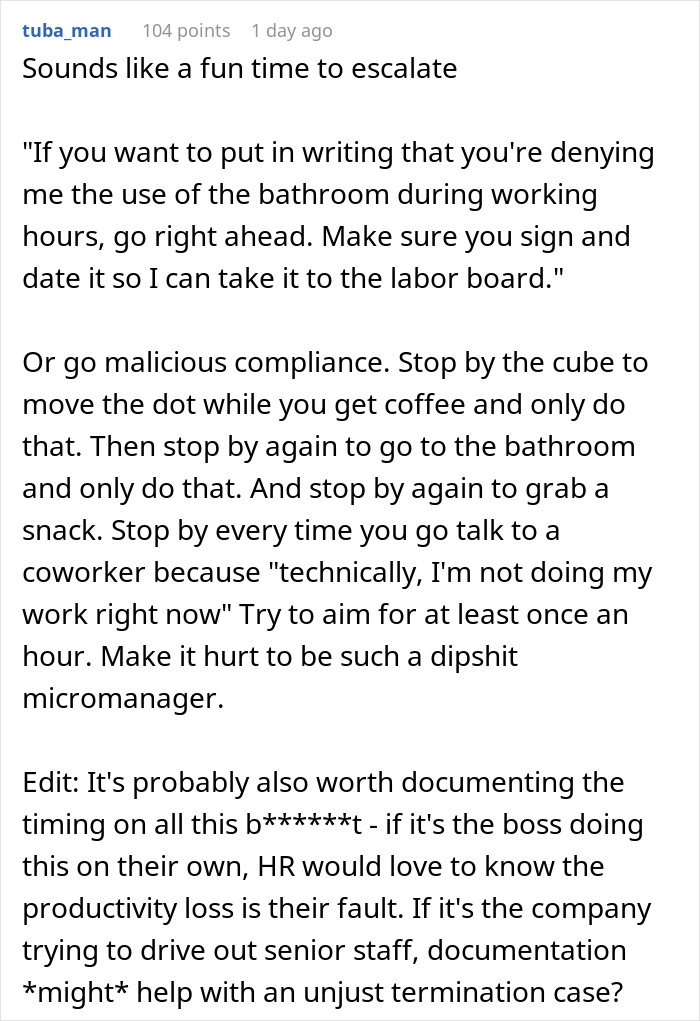












































30
22